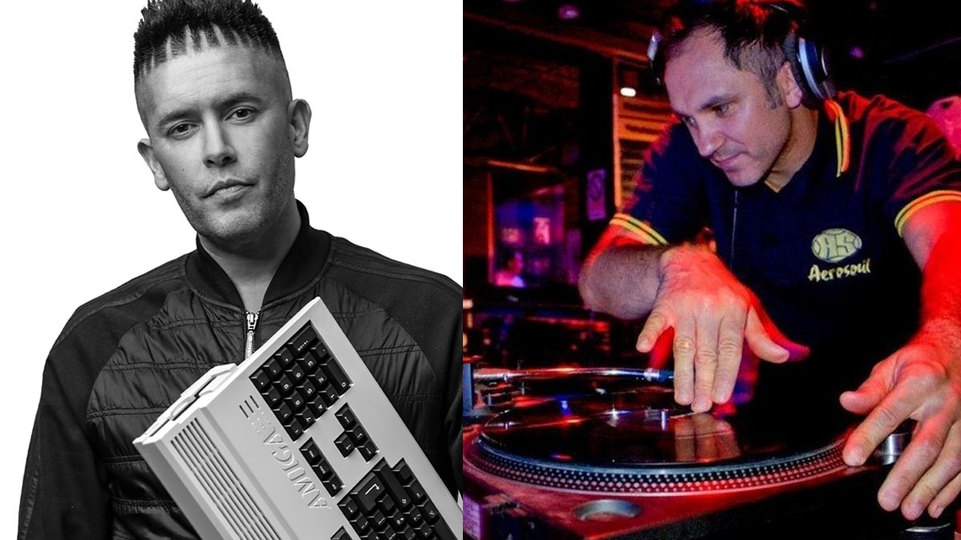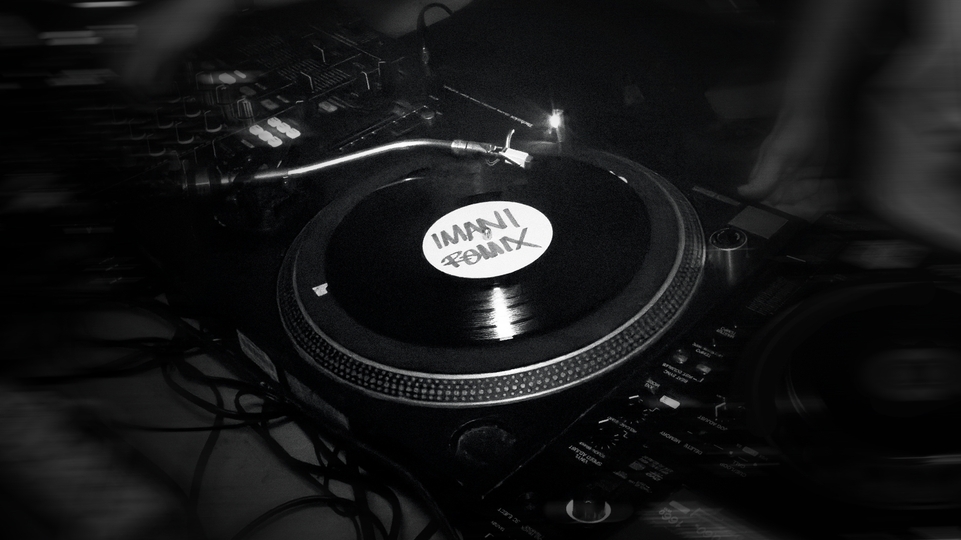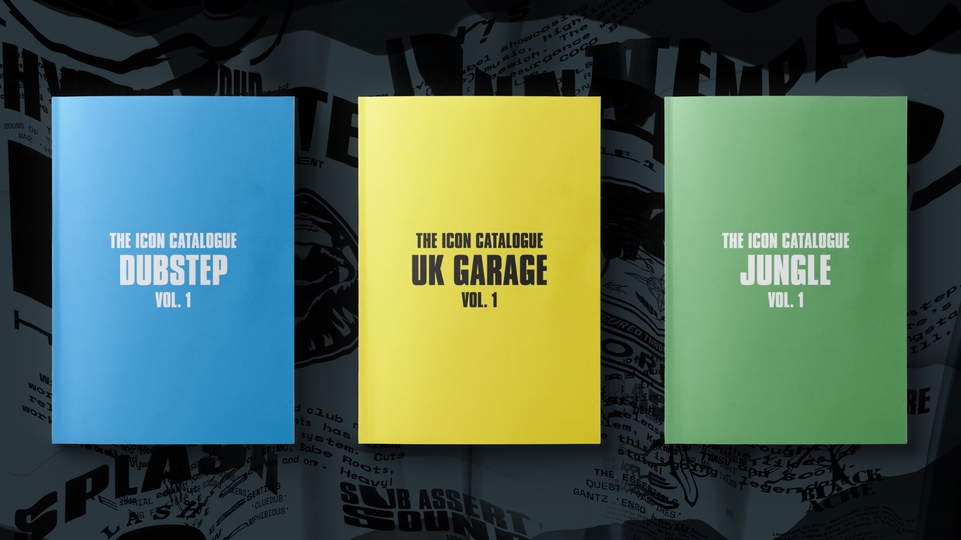
Paradox: the numbers game
Three decades and nearly 200 records into his career, jungle maverick Paradox is still breaking new ground, and earning new fans in the process. Ben Hindle speaks to him about using an old Amiga computer for his productions, keeping the funk in his breakbeat samples, and his dedication to performing live
“At the moment, I’m just trying to think of ways to bankrupt my distributor,” says Dev Pandya, his face plastered with a schoolboy grin. While his words may be tongue-in-cheek, the reason behind them is anything but. Pandya, best known as seasoned jungle artist Paradox, is just four records away from his 200th vinyl release. Even with the recent upturn in vinyl sales, it’s an achievement most can only dream of.
Though he’d hoped to mark the occasion this year, exactly three decades since his first release, the industry’s well-documented manufacturing delays have already pushed celebrations to 2023 — but rest assured, he will celebrate. “It’s got to be something special,” he says of the eventual product, reeling off ideas like metal cases and holograms. “Goldie did the boxset tin, so I’ve gotta do something bigger. The distributors warned me that I’m not gonna make any money on this, but at the end of the day, you’re only 200 once.”
Regardless of when or how it happens, reaching such a milestone is a testament to Pandya’s dedication to the craft and the enduring appeal of his signature Paradox sound. His records often sell out and his tracks are instantly recognisable — intricate, lively drum workouts that seem to roll ad infinitum. A breakbeat obsessive, everything is sampled and nothing is overproduced; honouring the original and maintaining the funk are of the utmost importance.
“Every time I sample something, I wanna pay homage to the drummer. I don’t wanna embarrass their work, turn it into cutlery falling down the stairs,” he explains. “The funk ethos has a groove; you always fall back on the one, keeping in time no matter if you’re swinging to the left or the right.”
His commitment to funk has earned him work with jazz legend Herbie Hancock and spawned a whole sub-genre — drumfunk — taking its name from a track on his 2002 Reinforced Records album, ‘What You Don’t Know’, that features breaks and grooves sampled from James Brown. While he prefers to stick to the term jungle, that drumfunk is widely used today is another sign of his lasting impact on the genre.
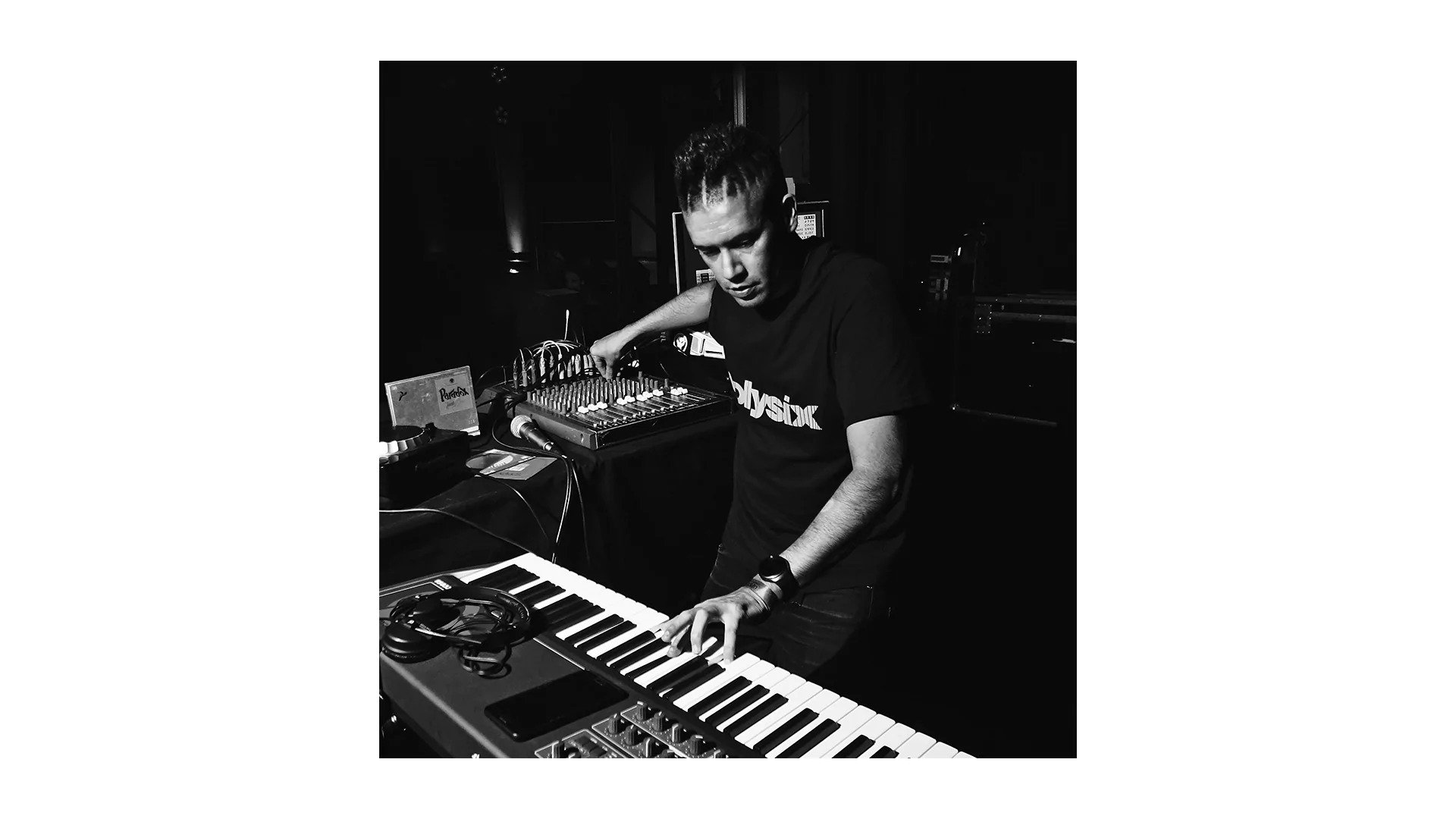
Pandya’s love for breaks originated with hip-hop. Growing up on the Hertfordshire and Essex border, he fell for the fledgling sound as a teen in the 1980s, watching Tim Westwood on late-night TV and hunting for records by Gang Starr, Public Enemy and Rob Base & DJ E-Z Rock. He enjoyed the rapping, but it was the breaks that had him hooked: Funky Drummer, Amen, Think — all chopped and looped to build the classic punchy beats that formed hip-hop’s backbone.
He made the connection with funk records he’d heard on the radio or in his dad’s record collection, and began to investigate. “I had this Casio sampling keyboard,” he recalls, “so I’d be putting little ‘Funky Drummer’ loops into my one-second sampling time.” One day, he answered the phone to his sister’s then-boyfriend, Dave — aka DJ Trax. The two instantly connected over hip-hop.
“I hijacked her relationship, basically,” says Pandya. “He’s a brilliant DJ, brilliant scratcher... all the hip-hop records I was looking for, he had them. Underneath his decks, he had racks and racks — then I knew, we’re gonna be together forever.”
By then it was 1989 — “the pinnacle of breakbeat hip-hop”, as Pandya calls it — and the two decided to make music together as Mix Race. In 1991, they called the number on the back of a Kaotic Chemistry record: partly because they liked the music, partly because they liked the logo. The number was for Moving Shadow, and label boss Rob Playford asked them to come over to play him some demos.
The music was a good fit for the label, with plenty of rave stabs — Dave scratching, Dev rapping — but one thing made it stand out. The boys had been working without a bpm counter and unknowingly sped the breaks up to 180bpm. Playford thought it was bonkers, but offered them a contract there and then. They were just 18 years old.
“We said we’d go away and think about it, ’cause we were a bit starstruck,” Pandya remembers. “But as we left, on the rack Rob had these Moving Shadow coats, and as soon as we left we were like, ‘That’s it, we’re signing — and we’re gonna get a jacket!’” Their debut record, released the following year, featured a track dubbed ‘Too Bad For Ya (Is 180 Too Fast For Ya)’.
Fast forward 30 years, and the only thing that Pandya’s maintained longer than his music career is his signature striped haircut. He’s put out nine studio albums under Paradox, his ambient jungle alias Alaska (named after his cat), and with Dave Sims under his Nucleus and Noise monikers. He’s released music on a grand total of 49 vinyl labels, including Metalheadz, Samurai Music, Droppin’ Science and four of his own, and will make it an even 50 with 2 Bad Mice’s label Over/Shadow this year — something of a full circle moment (we can expect the return of Mix Race through the imprint).
Pandya’s primary imprint, Paradox Music, is the outlet for his last two releases. In late 2021, he put out ‘Soviet’, a furious Amen juggernaut which, despite being the first time Pandya had touched that most popular of breaks in years, feels destined to become a modern classic. “Russian friends in my life thought it was dedicated to them, but it’s about [British Prime Minister Boris] Johnson,” he says.
As a touring artist who runs physical labels, Pandya has felt the sting of Brexit and the UK leaving the single market, which he says has taken the country “down the third world Soviet rabbit hole”. He’s so angry about the situation that he had some choice words about Johnson inscribed into the runout groove on each disc; he also inscribed the message “Bollocks to Brexit island” on the sleeve, something he says he’ll do “until his grievances are taken care of”.
Pandya lives in Lithuania, where he moved over a decade ago to produce his 2009 album ‘Isolationist’. Aside from temperatures that drop to -30°C in winter and the government handing out radiation sickness pills in case something goes wrong with a nearby Belarusian nuclear plant, he seems content there. He finds the language incredibly complex, but he’s still taking lessons in case he needs to get an EU passport.
“I do miss London. I miss clubs and when I see people posting things about what’s going on in London... oh, you just can’t beat that!” he says. Pandya admits that he feels a bit embarrassed to admit he’s British, given the current state of affairs with Brexit. If asked where he’s from, he falls back on his Indian heritage — “England’s like a dirty word here at the moment.”
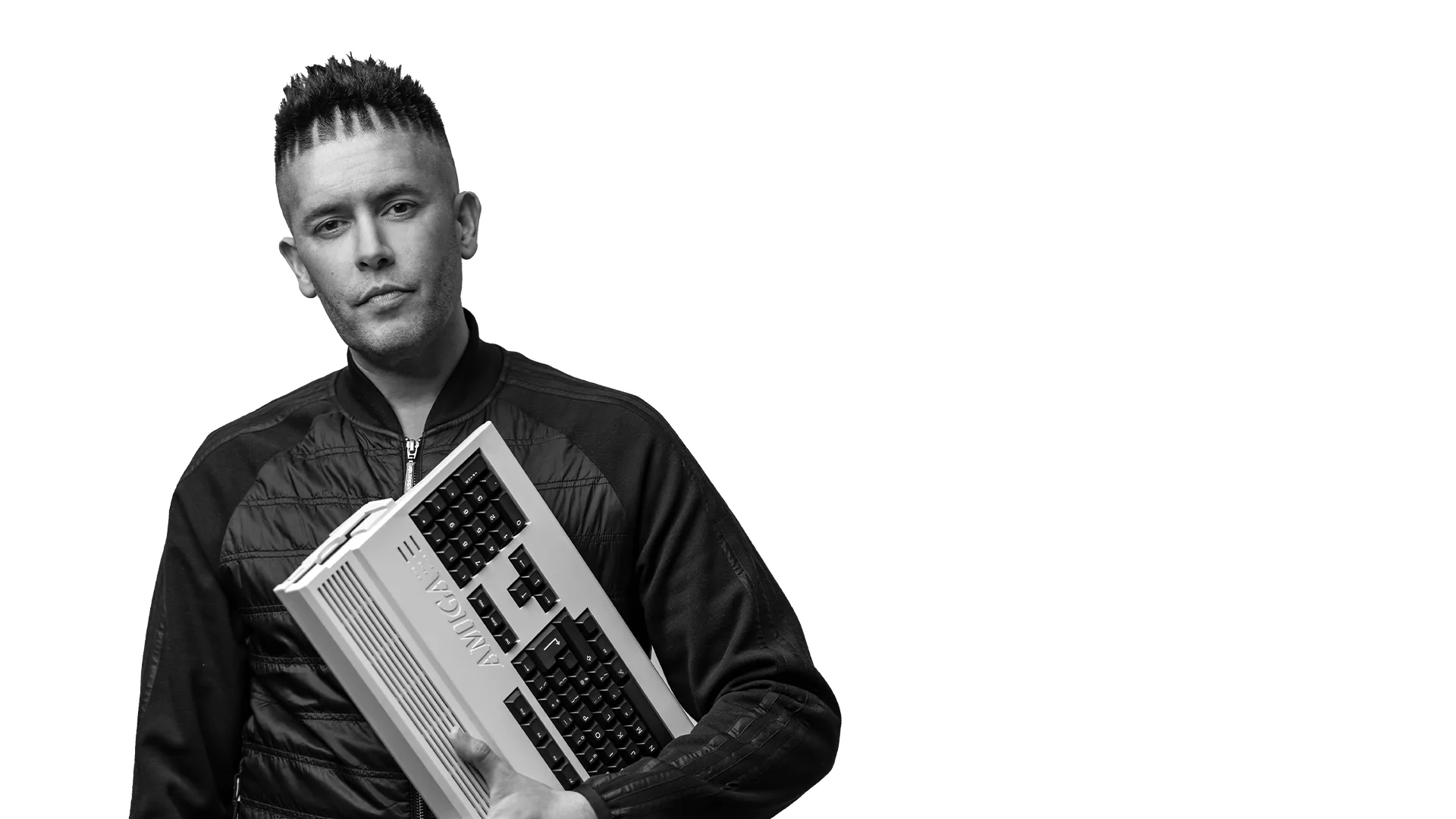
The latest Paradox Music 12-inch features a gravelly ode to b-boys called ‘Streetbeat’ and cosmic funk cut ‘Drum Throne’. Both tracks slow the pace from his usual 170+bpm range to around 150 and 130 respectively. Lower tempos allow the breaks to breathe, he explains, not to mention the fact that some older breaks just don’t hold up to the stresses of being run at high speeds.
The tracks are a continuation of a rekindled interest in downtempo production that began with last year’s ‘Octa4’ release for Sneaker Social Club. Initially reluctant to add another label to his discography, Pandya was convinced after flicking through the Sneaker catalogue, and decided to put out a slower tempo release for the first time since his days with Reinforced. He was so impressed with the resulting campaign that he’s got another in the pipeline for later this year.
“That 12-inch reached out to a lot of people that I personally wouldn’t have even thought of sending it to, so I think he [label boss, Jamie Russell] actually helped me out as well. Even though the Sneaker Social thing was the 47th thing I’d done on vinyl at a slower tempo, I hadn’t done it for so long that I’ve kind of fallen in love with it again. So props to him.”
He says ‘Octa4’ introduced his work to a new audience, some of whom had previously thought him just a jungle producer. “It’s woken me up a bit,” he says. “I’m nearly 50, so I’m thinking maybe I should be branching out a little bit with breakbeat. That’s why I’ve done the second one, and honestly, the second one’s better — not that I’m biased!”
We discuss the resurgence of breakbeat over the last half decade or so — “seeing that has really invigorated me” — and Pandya’s own contributions to furthering the cause: his two ‘Wax Breaks’ albums, vinyl-only collections of breaks purpose- built for others to sample.
What’s perhaps most surprising to anyone unfamiliar with Paradox, is that not much has changed about his production process over the last three decades. He’s always learning and improving, but when it comes to technology, Pandya still uses his Commodore Amiga 1200 — a computer that also marks its 30th anniversary this year — and an Akai S3000XL sampler from 1996.
He had both kitted out with all-black casing — the “Knight Rider” look, as he puts it — and the latter is customised with his name, as displayed on the cover art for his new ‘Streetbeat’ 12-inch. “Seba calls it prehistoric,” he says of his setup. The Swedish producer has been a studio collaborator and friend for 20 years — Pandya is godfather to one of his kids — and when they work together, they “get an Amiga head start” before switching to more modern gear.
“The funny thing is, in all computer DAWs today everything goes left to right, but what I use goes down. So when we’re in the studio at Seba’s, we’re working and I’m like this...” Pandya bends his neck until his head is fully horizontal. “Then I see everything!”
Pandya is pleased to see others are rediscovering this old hardware now, but for him it’s always been the only way, and defines what he does beyond his studio with his live show. While many other electronic music genres have widely embraced live performance alongside DJing, it’s still a rarity in the jungle scene — and when it does happen, nobody is bringing out the kind of ancient technology that Paradox does.
“The fact that I take it on stage is completely stupid to be honest, because there’s no backup plan. If it goes wrong, it goes wrong — that’s it,” he says with a chuckle. “Actually, I shouldn’t have told you that — it never goes wrong!”
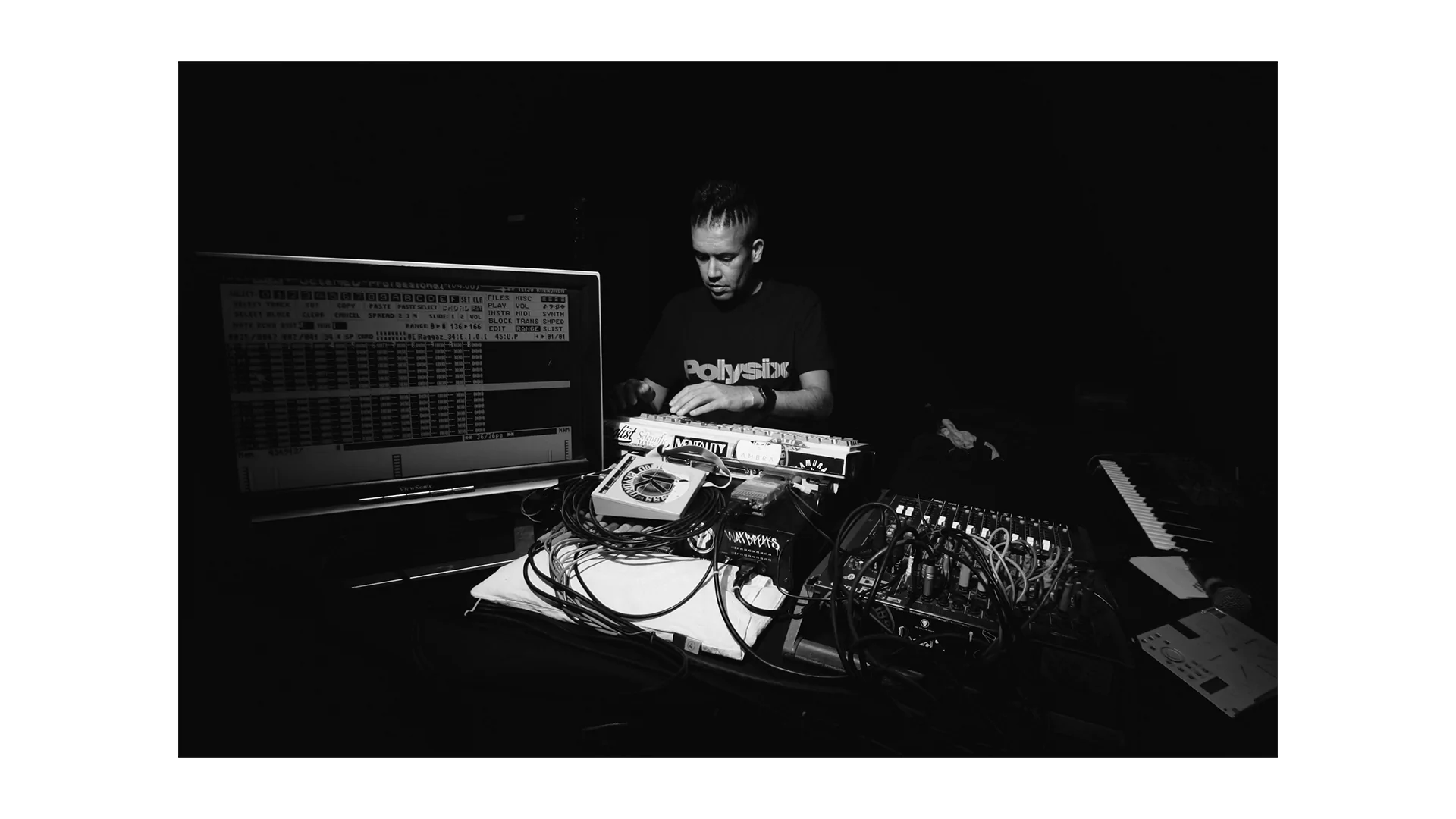
His live show consists of another A1200 (this time just with black keys), the S3000XL, a 16-channel mixer, a Roland synth to jam on, and two TV monitors customised to work with the Commodore — one for Pandya to work from, and one for the crowd to watch what he’s doing. Ever the showman, he’s also got a microphone so he can talk to the crowd about the breaks... alongside slating Boris Johnson, of course, and Manchester United (he’s a Liverpool fan). The only part he doesn’t ship with him is the Roland, meaning almost everything is crammed into two suitcases, with pants, socks, etc pretty much an afterthought.
“I don’t trust airlines at all, so as my hand luggage I take the Akai sampler, which is... overweight,” he admits with a shrug. He’s not beyond pretending it’s a laptop and causing a bit of a scene to get it through security. “It’s difficult, but every show is worth it.” He does still worry about the equipment in the hold. “As soon as I arrive, I get my stuff and go straight to my hotel. If it comes on then I’m happy, I know everything’s gonna go fine, but there’s always that slight bit of anxiety that is there. But that’s the problem if you use equipment from the ’90s; you’ve gotta expect that.”
Pandya believes the novelty of seeing his old gear in action is part of the reason people book him. “The last time I visited Japan, I think they were more interested in booking me because of the Amiga.” But as a self-confessed vinyl head, why not just DJ? It all goes back to when
he started out with Trax. “I was the rapper, and my DJ was the DJ. DJing was his thing, so I kind of looked at DJing like, ‘I never wanna do that, I’m a rapper and I’m brilliant’. Then I realised after one rap record that I was shit. I stopped doing it and we both concentrated on production.”
The live performance aspect came to life when he was invited to play a gig in Italy in the late ’90s. “With a live PA, anyone that books me, they have to book me for me, and that is quite an honour in itself. That ended up turning out to be like a drug. When I come home, it’s like, ‘Oh well, I feel normal now, when’s the next one?’” he says, putting on a sad voice. The trade off, Pandya admits, is a lack of studio time, but 2019 was the busiest year of his career in terms of touring, with gigs across Europe, North America and Australia. He’s eager to get back on the trail now clubs are reopening around the world.
When he is in the studio, Pandya’s not a particularly fast worker. He’ll spend weeks at a time tinkering with breaks, taking no less than a month to complete a track. He looks for breaks with “good ‘noise’ behind them”, such as cymbals and other tonal sounds. “They really are gold,” he says, “because when you choose pitches, it changes the character completely.” He begins tracks on paper — literally — writing ideas for breakbeats, samples and hooks on notepads or a white board in his studio.
“I’m not a computer drop-down menu man. I find researching this way beforehand speeds up the process. I don’t structure track sequences, but I take notes to remind me which breaks or vocals will be better at different tempos, or certain things that need time-stretching attention,” he explains. “I can’t watch a film without my ear samplers on alert, so a notepad on the sofa is never out of sight.”
He’s switched on to music from the moment he wakes up to the moment he falls asleep. But after three decades, who wouldn’t be? “I’m fortunate that I’ve been a professional musician all my life. I’ve never had another job,” he says, “but I’m still learning and tuning my craft.”
